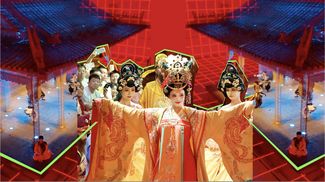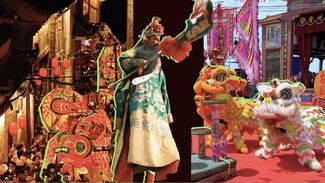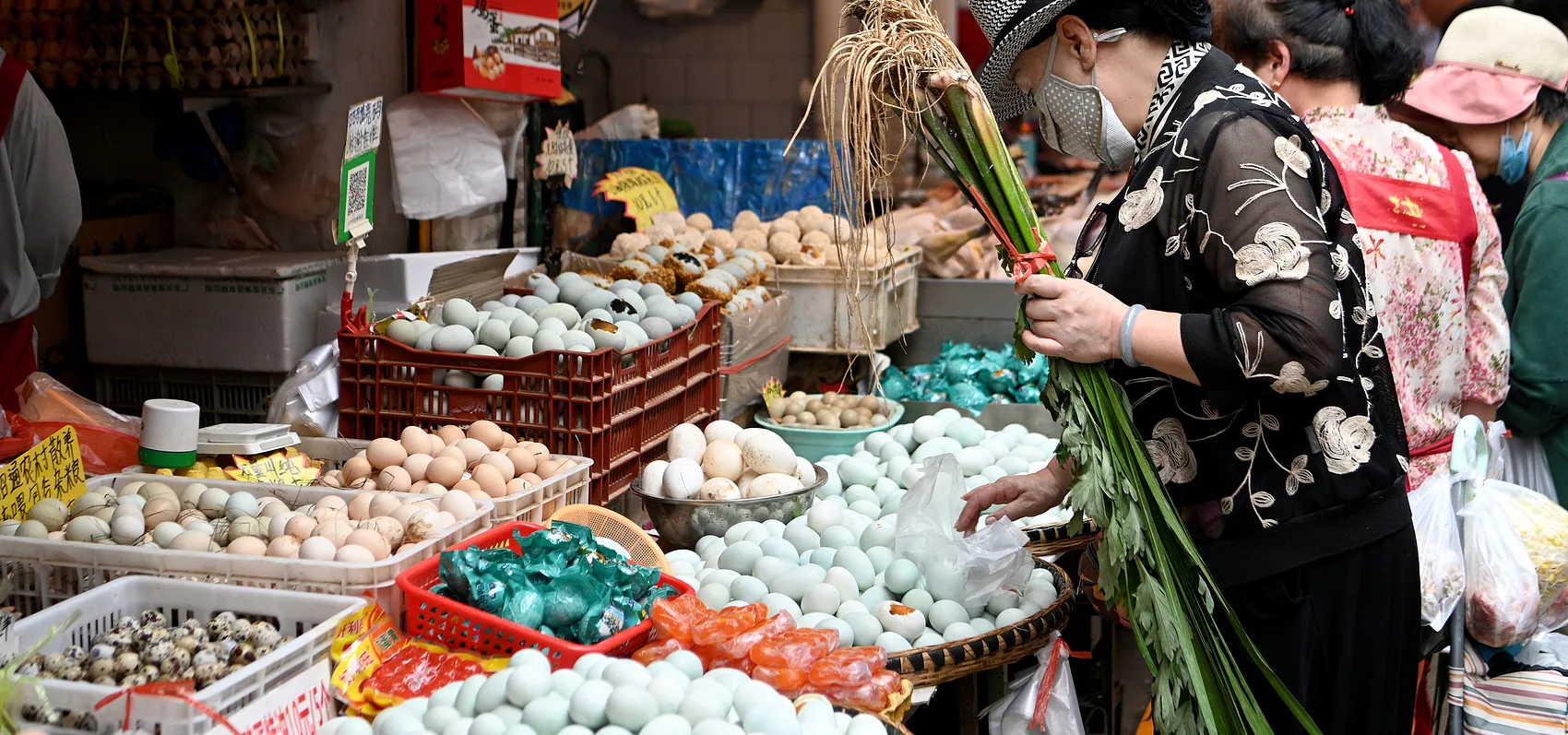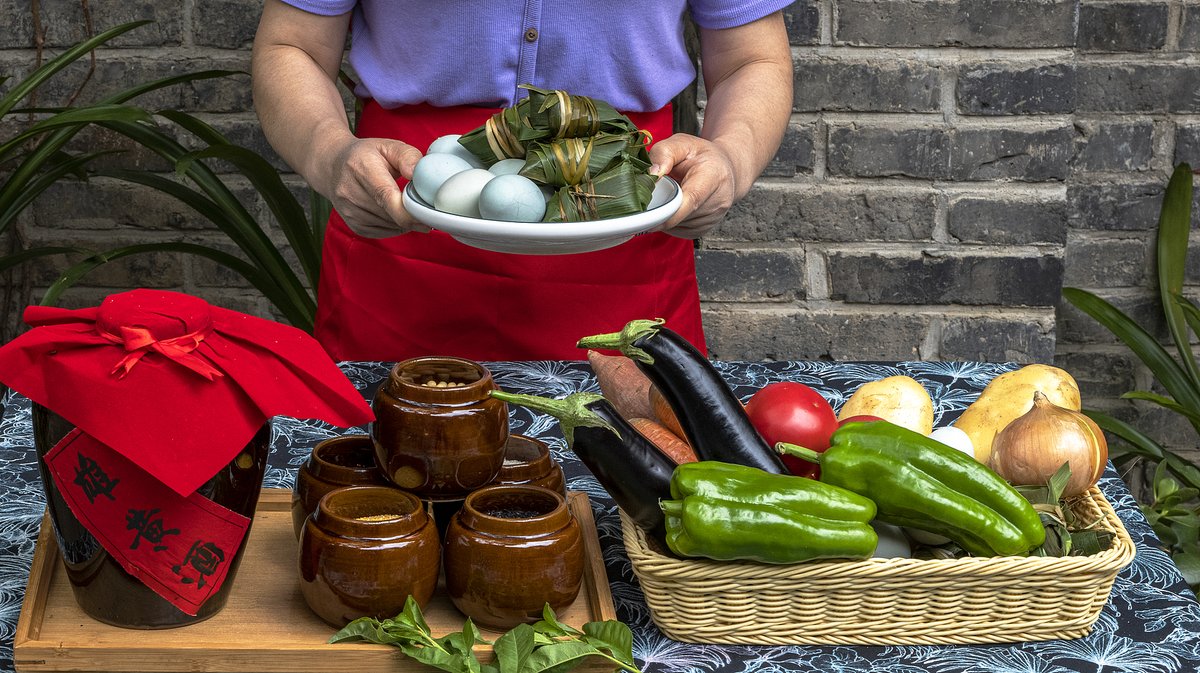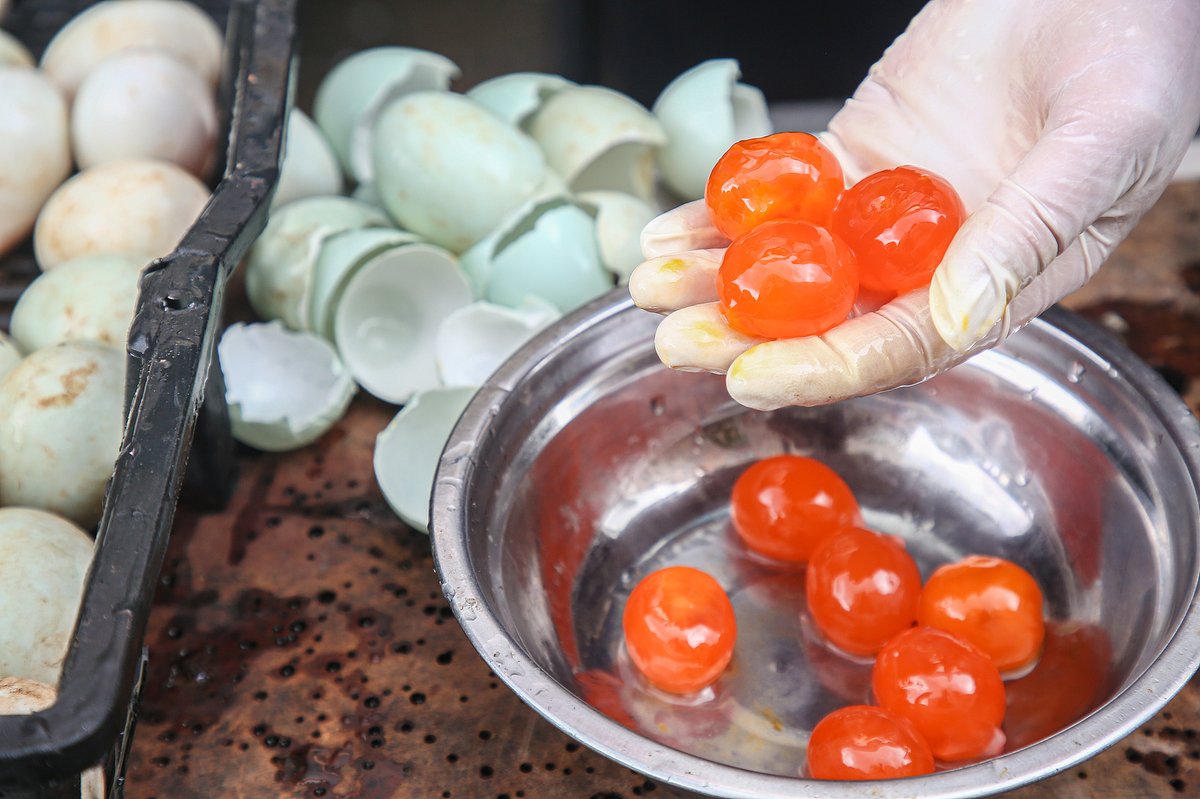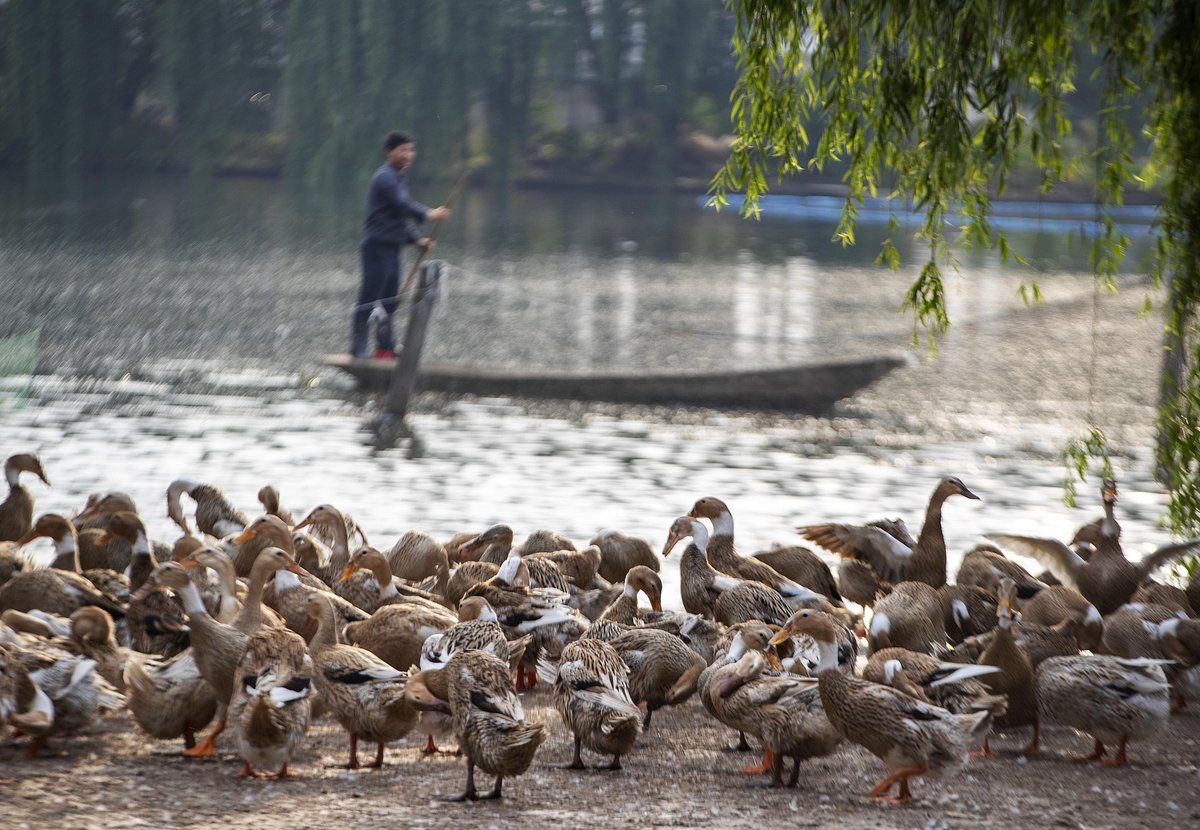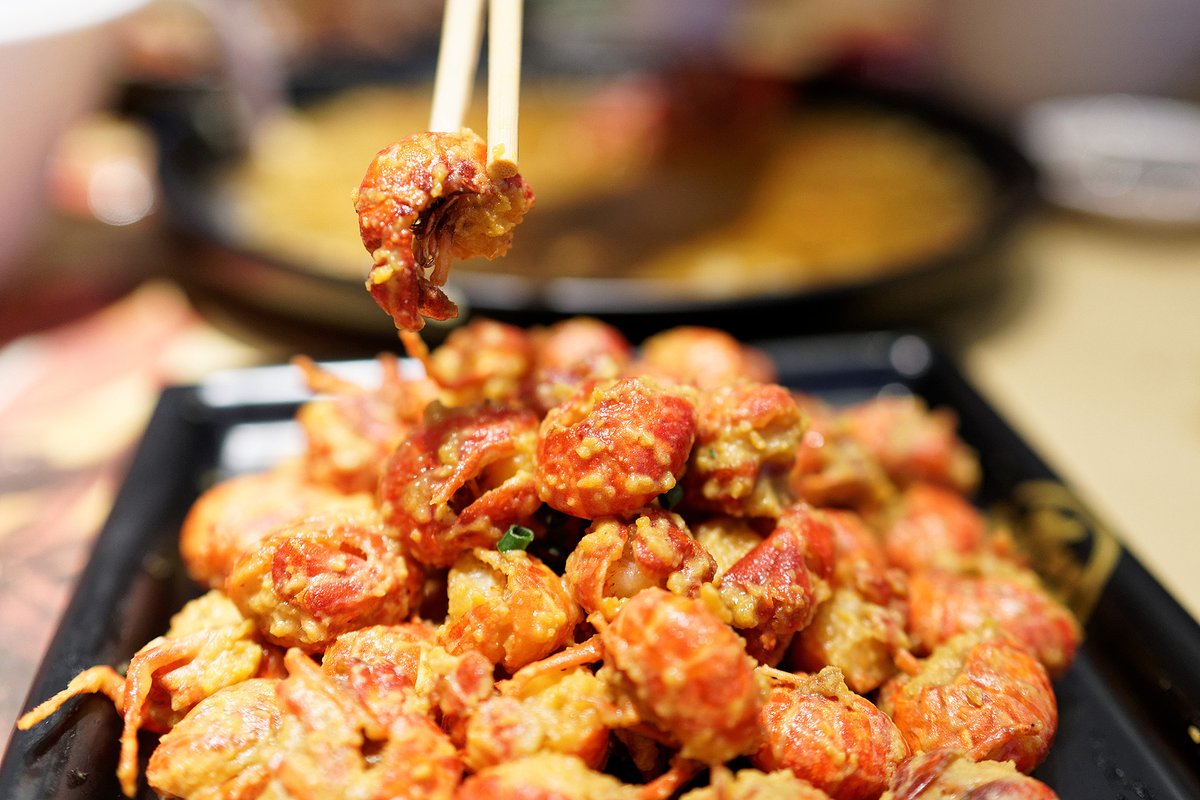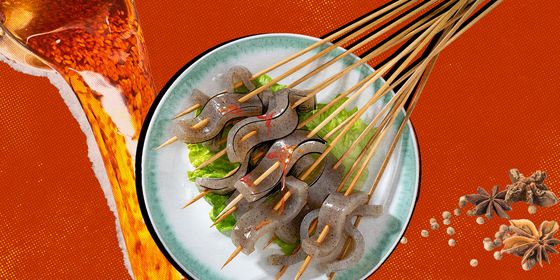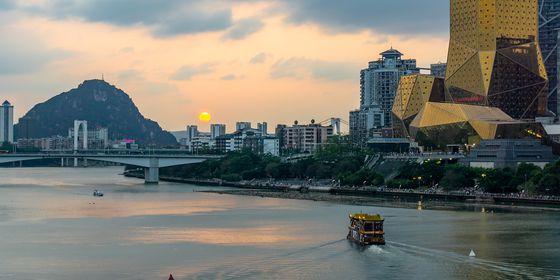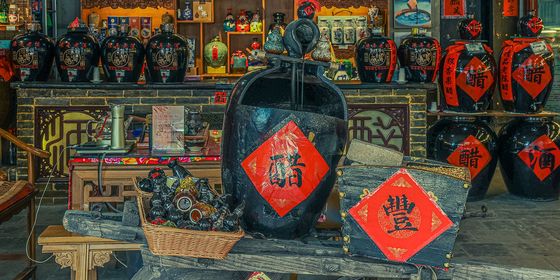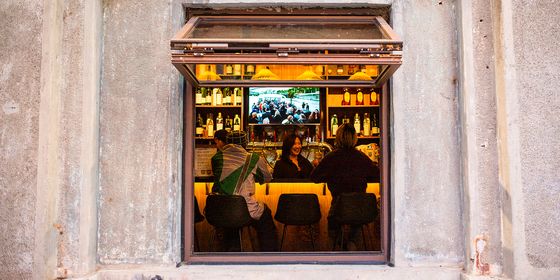The salted duck egg is an icon in Jiangnan cuisine. It’s most popular during the Dragon Boat Festival, but no time is a bad time for this classic delicacy.
The recently celebrated Dragon Boat Festival is one of China’s four major traditional holidays. Like most Chinese festivals, it comes with its own distinctive culinary customs. The best-known Dragon Boat tradition, of course, is eating zongzi, steamed sticky rice dumplings wrapped in bamboo leaves. But look a little closer, and you might spot another seasonal delicacy on the table: the salted duck egg.
In recent years, gift boxes of salted duck eggs have gained popularity during the Duanwu holiday season, often packaged alongside zongzi. This trend marks a successful export of food culture from Jiangnan China’s canal-veined heartland along the lower Yangtze River. According to the Dictionary of Chinese Customs, published by the Shanghai Lexicographical Publishing House in 1990, Jiangnan has long observed the tradition of “consuming the Five Yellows (吃五黄)” during the festival, namely cucumber (黄瓜), yellow croaker (黄鱼), eel (黄鳝), salted duck egg yolk (咸鸭蛋黄), and realgar wine (黄酒), which all include the character 黄 (yellow) in their names.
Explore the Myths and Traditions of the Dragon Boat Festival:
- The Fast and Furious Dragon Boat Racers of Foshan
- Choice Chengyu: Speaking of Qu Yuan
- Discover the Many Legends of Dragon Boat Festival
Folklore holds that the fifth day of the fifth lunar month marks the peak of yang energy, and eating these foods is believed to ward off evil, detoxify the body, and boost vitality. In some parts of Jiangnan, a different tradition—eating the “Twelve Reds (十二红)”—prevails, involving 12 red-toned dishes. Salted duck eggs are also included here, thanks to the vibrant hue of their cured yolks.
Salted duck eggs are made by soaking fresh duck eggs in a high-concentration brine for 20 to 40 days, then boiling them before serving. This curing process removes the egg’s natural gaminess and extends its shelf life during the summer heat. The salted egg white turns firm yet delicate, while the yolk becomes rich, sandy, and beautifully golden—a stark contrast to fresh duck eggs. Most importantly, a well-made salted egg will ooze oil, a sign of premium quality. Duck egg yolks are naturally high in fat, and during the salting process, the proteins that once bound the fat coagulate, allowing tiny droplets to merge into visible golden oil. So if you spot that glistening oil between the yolk and the white after cracking the shell, you’re holding a perfectly salted egg.
The history of salted duck eggs dates back over a millennium. Essential Techniques for the Common People (《齐民要术》), an agricultural manual compiled in the 6th century, records an early curing method: soaking eggs in a mixture of salt and the juice of yuan tree bark, earning them the nickname “salty yuanzi (咸杬子).” At that time, they were enjoyed as a savory accompaniment to wine.
In 2007, archaeologists excavating a 13th-century sunken merchant ship in the South China Sea off Yangjiang, Guangdong, discovered salted duck eggs dating back over 800 years—evidence of their enduring appeal as a tasty, storable, and portable food.
Chinese culinary culture places a strong emphasis on authenticity, and salted duck eggs are no exception. The most renowned producer of salted duck eggs is Gaoyou, a small city in Jiangsu province. The indigenous Gaoyou duck, a sparrow-feathered mallard, is known for laying large eggs with unusually large yolks, and occasionally, even double-yolk eggs. The region’s abundant water resources, including Gaoyou Lake, Jiangsu’s third-largest freshwater lake, provide ducks with a diet rich in fish and shrimp. This results in plump ducks and flavorful eggs. During the Northern Song dynasty (960 – 1127), Gaoyou-born poet official Qin Guan (秦观) once sent his mentor and friend Su Shi (苏轼), a care package of local specialties, including a generous quantity of local duck eggs, along with a poem listing the gifts. Given the storage limitation of the time and the distance between them, about 300 kilometers, it is reasonably concluded that the eggs were salted. Qin’s poem is often considered the earliest written record of Gaoyou’s salted duck eggs.
The renowned 18th-century gourmand and writer Yuan Mei (袁枚) declared Gaoyou’s salted duck eggs the finest in China. In his culinary classic Recipes from the Garden of Contentment (《随园食单》), he wrote: “Gaoyou has the best salted eggs, which are fine in color and rich in oil.” He also described how they should be eaten: “Always slice them in half with the shell on, eat both yolk and white. Do not discard the white, or it will diminish the flavor and let the oil escape.” The 19th-century Gaoyou poet Wei Bosen (韦柏森) echoed the local pride in a verse: “Ducks by the river lay many eggs, some double-yolked and extra plump. Ships sail to Jiangnan laden with them, even supplying imperial exam halls.”
Another key figure in promoting Gaoyou’s duck eggs was contemporary writer Wang Zengqi (汪曾祺). In his 1981 essay “The Dragon Boat Festival’s Duck Eggs,” the Gaoyou native affectionately described the dish’s unique appeal. Wang stated that Yuan Mei’s slicing method was used for formal occasions, while locals preferred to crack open the blunt end and ate the contents carefully with chopsticks. Once pierced, red oil would gush out. “I’ve traveled widely and sampled many duck eggs,” Wang wrote enthusiastically, “but none compare to my hometown’s!” Since the essay was later included in Chinese middle-school textbooks, it helped further cement the fame of Gaoyou’s salted duck eggs.
“People used to eat salted duck eggs with a sense of ritual—tapping a hole on the shell and savoring it slowly. Even Wang Zengqi’s grandfather would stretch one egg over two meals,” recalled Gao Xiaochun, a 60-year-old retired power plant worker from Gaoyou, and a member of a local Wang Zengqi fan club. “But nowadays, people eat as many eggs as they want, and waste a lot.”
Gao told TWOC that in the past, Gaoyou residents cured eggs at home and often exchanged them as gifts. Today, however, most people buy salted duck eggs from supermarkets for convenience. With the rise of mass production, many feel the eggs have lost some of their authenticity. Still, Gao believes their status as the city’s culinary calling card remains unshaken.
In addition to Gaoyou, China boasts other renowned producers of salted duck eggs, including Weishan Lake in Shandong, Baiyangdian Lake in Hebei, Qinzhou in Guangxi, and the Shahu Lake area in Hubei.
Salted egg yolks appear in various regional culinary traditions as well. In Cantonese dim sum, steamed yolks are mashed with butter, milk, and sugar to create the iconic cream bun. In many southern regions, salted yolks star in zongzi, mooncakes, and various pastries. They’re also minced and stir-fried with ham to enhance boiled baby Chinese cabbage, or paired with tofu to make Northern Jiangsu’s signature dish, “cinnabar tofu.”
The best part? You don’t have to wait until the Dragon Boat Festival to get a taste.

